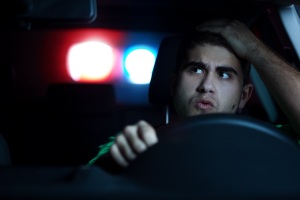Maryland DWI Lawyer
A DWI conviction carries with it consequences that reach beyond the courtroom. If you or a loved one have been charged with a DWI, you should consider enlisting a Maryland DUI attorney to help you fight your charge.
Maryland police have several different testing methods used to determine the blood alcohol content (BAC) of a suspected drunk driver. Often, the way that a driver’s BAC is tested is through a blood or breath test. While this and all field sobriety tests are voluntary, any driver who refuses to submit to chemical testing may face a mandatory suspension of their license.
Maryland DWI Penalties
 Penalties for a conviction vary and can range from two months in prison for the first conviction to two years in prison for subsequent offenses. The court also has the option of imposing monetary fines of up to $500 for the first conviction. Outside of court-imposed penalties, a person convicted with a DWI can lose their license or face increased auto insurance premiums and restricted travel to other states and countries.
Penalties for a conviction vary and can range from two months in prison for the first conviction to two years in prison for subsequent offenses. The court also has the option of imposing monetary fines of up to $500 for the first conviction. Outside of court-imposed penalties, a person convicted with a DWI can lose their license or face increased auto insurance premiums and restricted travel to other states and countries.
Don’t leave your defense up to chance or to an attorney that does not have a good track record of getting a positive result for their clients. Our Maryland DWI Lawyers have experience winning cases for their clients, and they will work tirelessly in the hopes of securing a positive result in your DWI case.
A Maryland DWI Attorney Can Help
Driving while impaired by drugs is heavily enforced by officers in Maryland counties. They have developed a set of procedures and tests to recognize drug impairment. If you are facing drug DWI charges in Maryland, contact a DUI lawyer in Maryland who has experience defending against drug-related DUI and DWI charges.
Biggest Mistake To Avoid In Drug DWI Cases
Most of the interviews that the officers conduct, specifically the drug recognition evaluator interview, are voluntary. An individual suffers no penalty if they refuse to do that interview. Individuals frequently are not aware of that and voluntarily provide the state with a great deal of evidence to be used against them.
How Do Officers Test For Drug Impairment In Maryland?
There are usually two steps in testing for the presence of drugs. One is an interview with a drug recognition evaluator or DRE. That individual will ask a series of questions, will take some physiological measurements, pulses, temperatures, looking for flaccidity of muscle tone, those types of things. Then if they feel that they have got enough probable cause to believe that there is impairment, and then they can ask for a blood draw. Then the blood draw will be tested to determine the presence of various drugs. So there’s a two-stage process. First, there’s a DRE evaluation and then there’s the chemical test.
What Do Officers Use As Evidence Of Impairment?
Officers may use driving behavior, and any kind of conversations or interactions that the individual had with law enforcement prior to the DRE evaluation. The thing that first drew the officer’s attention to that individual, the same type of evidence that they would use for a DUI alcohol case can also apply in the DUI drug case.
Driving Under The Influence Vs. Drug DWI
Driving under the influence can be broken up into two separate sub-charges. There is the standard DUI charge 21-902(a)(1). That involves a significant degree of impairment while operating a motor vehicle. There’s also a 21-902(a)(2) offense. It’s called DUI Per Se, it means operating a motor vehicle with a breath alcohol content of 0.08 or higher. If the state can prove operation of a motor vehicle and they can prove a breath alcohol content in excess of 0.08, those are the two required elements for a DUI per se charge. Your level of subjective impairment is irrelevant to the DUI per se charge because the DUI per se just looks at the breath alcohol content. Maryland law enforcement officials are cracking down on DUIs and DWIs, especially in areas like Rockville and Bethesda.
Now, driving while impaired by drugs, rather than alcohol, falls under 21-902(c)-(d). In fact, that’s what the 21-902 (c) and 21-902 (d) offenses are. They are for drug-related impairment. They’re specifically enumerated to cover individuals who’re impaired by drugs and not alcohol.
